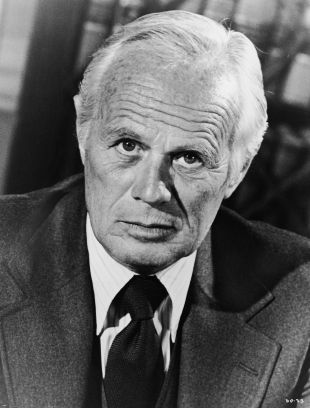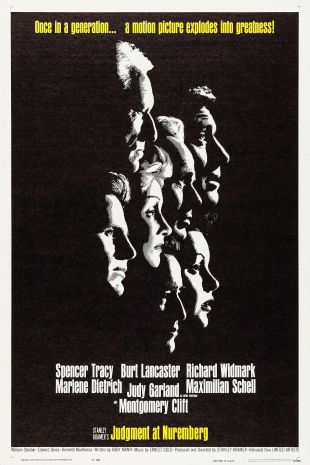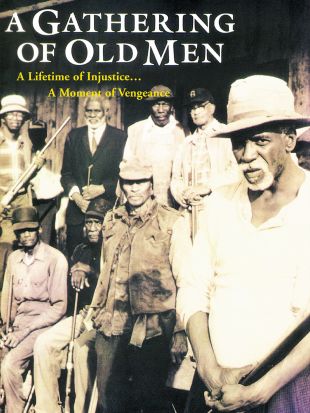The son of a traveling salesman, actor Richard Widmark had lived in six different Midwestern towns by the time he was a teenager. He entered Illinois' Lake Forest College with plans to earn a law degree, but gravitated instead to the college's theater department. He stayed on after graduation as a drama instructor, then headed to New York to find professional work. From 1938 through 1947, Widmark was one of the busiest and most successful actors in radio, appearing in a wide variety of roles from benign to menacing, and starring in the daytime soap opera "Front Page Farrell." He did so well in radio that he'd later quip, "I am the only actor who left a mansion and swimming pool to head to Hollywood."
Widmark's first stage appearance was in Long Island summer stock; in 1943, he starred in the Broadway production of Kiss and Tell, and was subsequently top billed in four other New York shows. When director Henry Hathaway was looking for Broadway-based actors to appear in his melodrama Kiss of Death (1947), Widmark won the role of giggling, psychopathic gangster Tommy Udo. And the moment his character pushed a wheelchair-bound old woman down a staircase, a movie star was born. (Widmark always found it amusing that he'd become an audience favorite by playing a homicidal creep, noting with only slightly less amusement that, after the release of the film, women would stop him on the street and smack his face, yelling, "Take that, you little squirt!") The actor signed a 20th Century Fox contract and moved to Hollywood on the proviso that he not be confined to villainous roles; the first of his many sympathetic, heroic movie parts was in 1949's Down to the Sea in Ships. After his Fox contract ended in 1954, Widmark freelanced in such films as The Cobweb (1955) and Saint Joan (1957), the latter representing one of the few times that the actor was uncomfortably miscast (as the childish Dauphin).
In 1957, Widmark formed his own company, Heath Productions; its first effort was Time Limit, directed by Widmark's old friend Karl Malden. Widmark spent most of the 1960s making films like The Alamo (1960) and Cheyenne Autumn (1964), so that he could afford to appear in movies that put forth a political or sociological message. These included Judgment at Nuremberg (1961) and The Bedford Incident (1965). A longtime television holdout, Widmark made his small-screen debut in Vanished (1970), the first two-part TV movie. He later starred in a 1972 series based upon his 1968 theatrical film Madigan. And, in 1989, he was successfully teamed with Faye Dunaway in the made-for-cable Cold Sassy Tree. Richard Widmark was married for 55 years to Jean Hazelwood, a former actress and occasional screenwriter who wrote the script for her husband's 1961 film The Secret Ways (1961). Their daughter Anne married '60s baseball star Sandy Koufax. Widmark died at age 93 in 2008, of health complications following a fractured vertebra.



